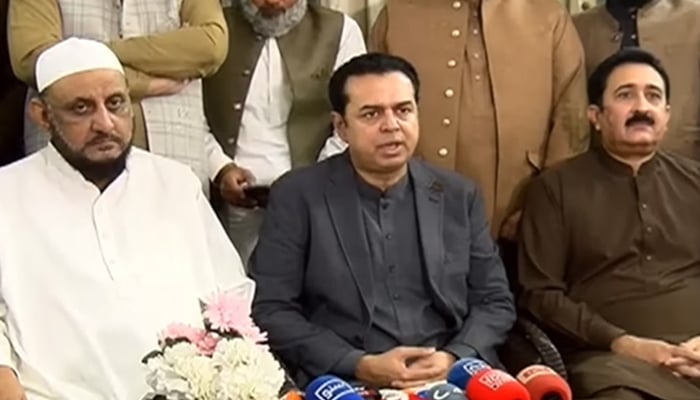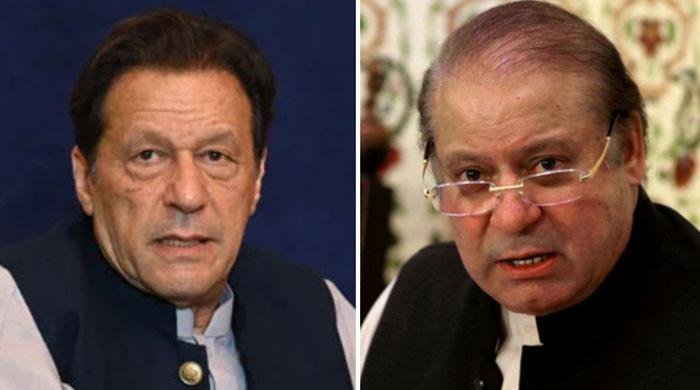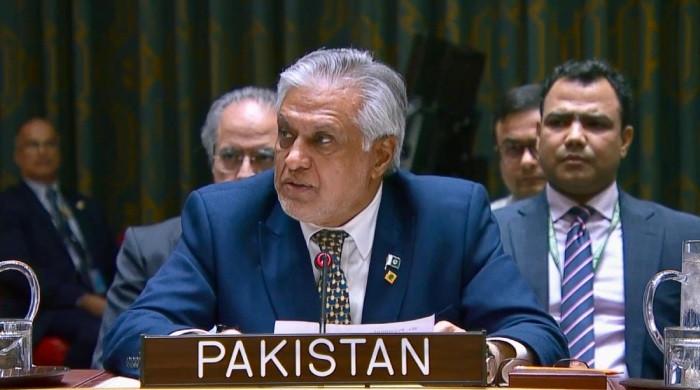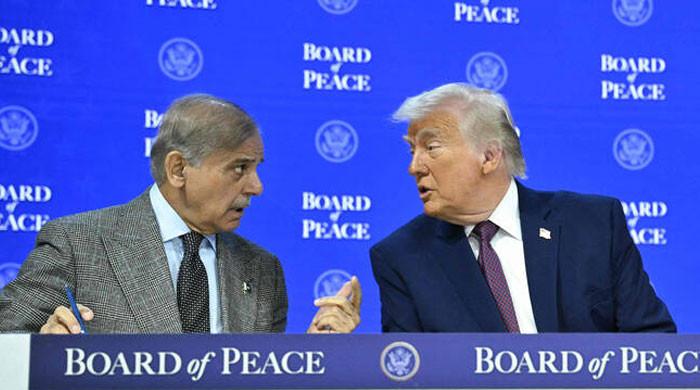Constitution will reflect parliament and people, not judges: Talal Chaudhry
Judges "are not a political party" and only take an oath to uphold Constitution, says minister
November 16, 2025

- Minister insists judges are not a political party at all.
- Warns Pakistan cannot afford instability or chaos now.
- Defends parliament's authority to amend Constitution.
Responding to criticism of the Supreme Court's judges against the constitutional amendments, Minister of State for Interior Talal Chaudhry on Sunday defended the federal government's move, saying that making changes to the Constitution is the parliament's exclusive right.
His statement came after two top court jurists, Mansoor Ali Shah and Athar Minallah, tendered their resignations following the enactment of the 27th Constitutional Amendment earlier this week.
Not only the top court, a Lahore High Court (LHC) judge, Shams Mehmood Mirza, also resigned a day ago, saying he was "not inclined as a matter of principle and in good conscience to continue as a judge" after the 27th Amendment.
The tweaks fine-tuned the structure of the newly established Federal Constitutional Court (FCC), clarified the titles and ranking of the country's top judges, and approved changes to the military command.
On Friday, President Asif Ali Zardari approved Shah and Minallah's resignations.
"Amending the Constitution is Parliament's exclusive right, and it will do so whenever it chooses," he stated while talking to journalists in Faisalabad today.
He stressed that judges "are not a political party" and only take an oath to uphold the Constitution.
Criticising sections of the judiciary, Chaudhry said that the Constitution will reflect the parliament and the people of Pakistan, not judges. He added that the legislature "must be seen as Parliament", arguing that certain actors had "reduced it to a municipal corporation".
He further said that judges' salaries and "every single decision" ultimately came under Parliament's authority.
"These resignations [of judges] are political. They remained partial," the minister said.
The ruling Pakistan Muslim League-Nawaz leader said that the country cannot afford any form of chaos or instability at this stage.
"At times, they dismissed prime ministers through suo motu, and at other times they paralysed elected governments," he said.
Chaudhry said it was not the judiciary's role to "oust whomever it wants and install whomever it prefers".
It is noteworthy to mention here that the SC jurists had criticised the 27th Amendment, describing it as a "grave assault on the Constitution of Pakistan".
Shah, in his 13-page resignation letter, called the recent constitutional tweak an assault on the Constitution that dismantles the Supreme Court, compromises judicial independence, and weakens the country's constitutional democracy.
Warning that judicial independence faces "the beginning of the end", he said nations lose their moral compass when justice is constrained.
Justice Minallah, in his resignation letter, rejected the 27th Amendment, saying the Constitution he pledged to defend "no longer exists” and now survives only as a shadow without its spirit.
He wrote that he had warned the chief justice before the amendment's passage, but his concerns were realised amid "silence and inaction". Continuing in office, he said, would betray his oath and dishonour the Constitution's memory.
However, the federal government called the judges' resignations "political speeches" and the latter's allegations "unconstitutional".











